The backstory to seven of the most popular protest slogans in Hong Kong’s Umbrella Movement
HONG KONG—At Hong Kong’s pro-democracy protests, demonstrators have been using a wide array of puns, jokes, curses, and other wordplay in Cantonese to emphasize the distinct identity that they see as under threat from the mainland.
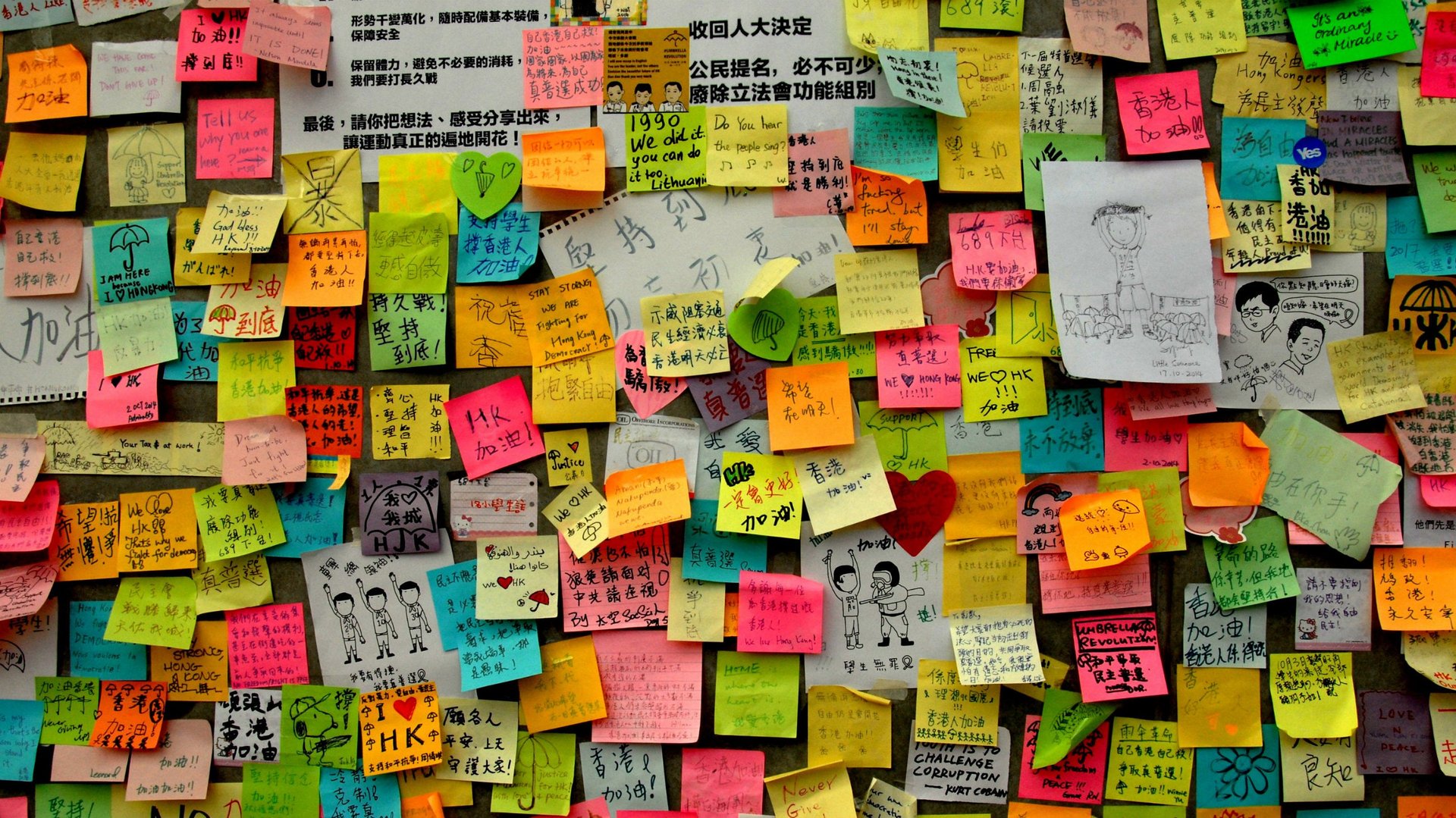

HONG KONG—At Hong Kong’s pro-democracy protests, demonstrators have been using a wide array of puns, jokes, curses, and other wordplay in Cantonese to emphasize the distinct identity that they see as under threat from the mainland.
Thousands of neon post-it notes, signs, and banners blanket the main protest site in Admiralty with words that many mainland Chinese have trouble understanding. A number of slogans have evolved over the nearly month-long bout of unrest—here are some of the most important phrases and what they mean:
1. “Umbrella fight movement”
As Quartz has reported, protesters are using two phrases to describe the pro-democracy protests that have overtaken the city since the end of September. The usual term used by local and international media is “umbrella revolution” (雨傘 革命, yusan geming in Mandarin, or ”umbrella revolution”) but colloquially protesters are using a Cantonese version (遮打革命, zeda gakming) which carries a little more punch: “umbrella fight movement.”
2. “Don’t forget why you are here”
Protesters began repeating the phrase 勿忘初衷, matmong cocung, or “don’t forget our original intention,” as student leaders translate it into English, to remind demonstrators to stay focused on the goal of securing direct elections and not get distracted by clashes with police or local residents.
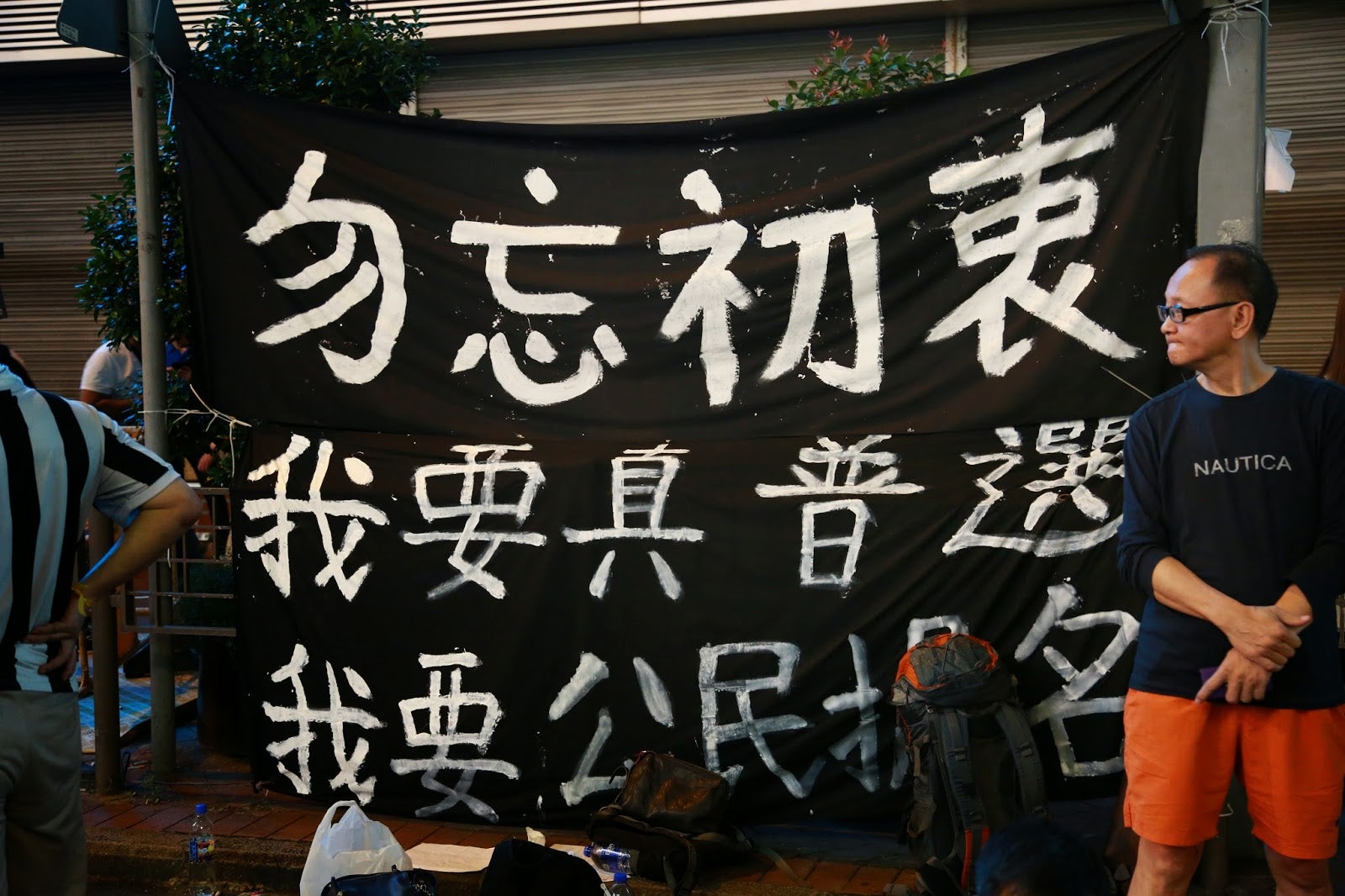
3. “Basked in light”
The Cantonese idiom 光明磊落, gwong ming lui lok can be translated as “basked in light” and has become a catchphrase for police brutality. Police first used the term to hail the department’s transparency but protesters now use the phrase sarcastically, using it as a euphemism for being beaten.
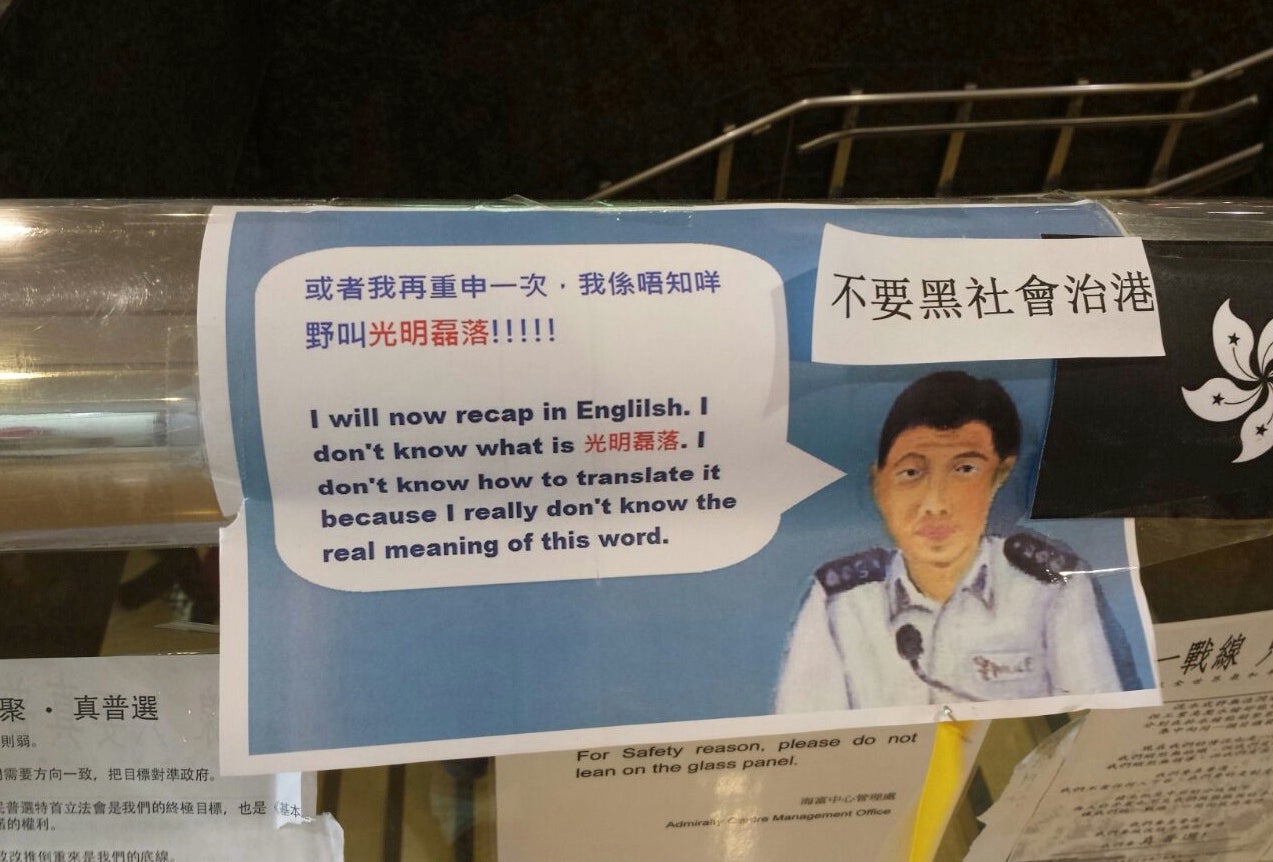
4. “Don’t be timid”
Protesters have used the phrase, 唔好怯, ng hou hip, or “don’t be timid” to urge demonstrators to stand their ground against police and other groups hoping to clear the protest sites. The day after protesters were tear-gassed and pepper-sprayed by police—images that actually encouraged tens of thousands to flock to the protests in anger—activists used the phrase as way to urge protesters to carry on.
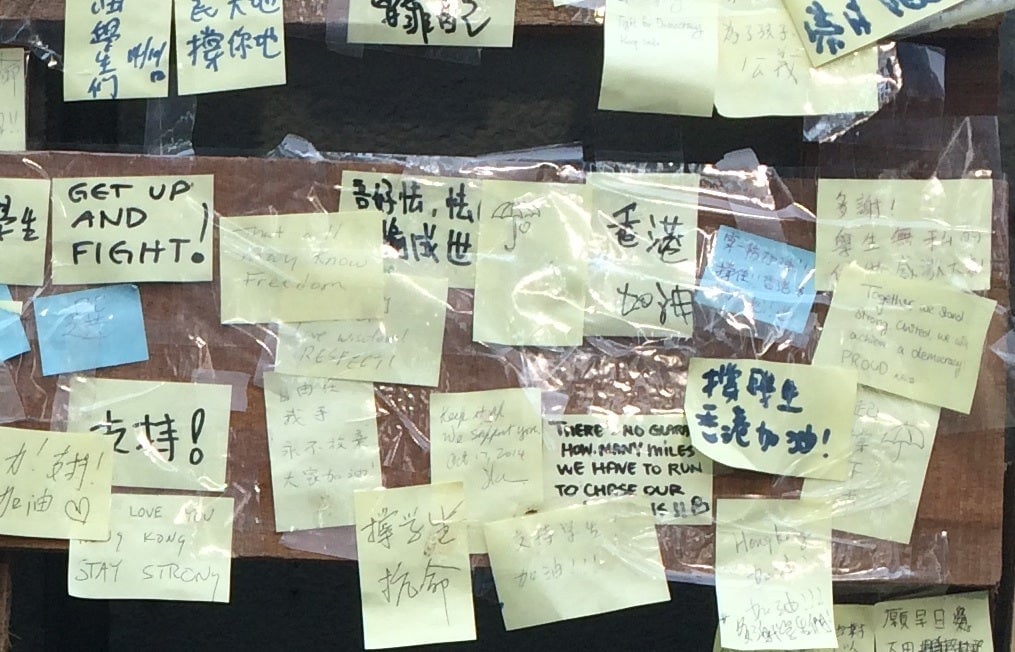
5. “689, get off the stage”
Hong Kong’s chief executive CY Leung has many nicknames among the protesters, including ”the wolf,” represented by a stuffed Ikea toy whose name in Mandarin is similar to a common (and profane) Cantonese curse lo mo sai. “689” refers to the number of votes Leung received from Hong Kong’s nominating committee when he was elected in 2012.下臺, ha toi, or “step down from the stage” is used to call on Leung to resign. Some protesters also add the letter “D,” for the common Cantonese profanity diu, and the number 7, a homonym for “dick,” to the phrase.
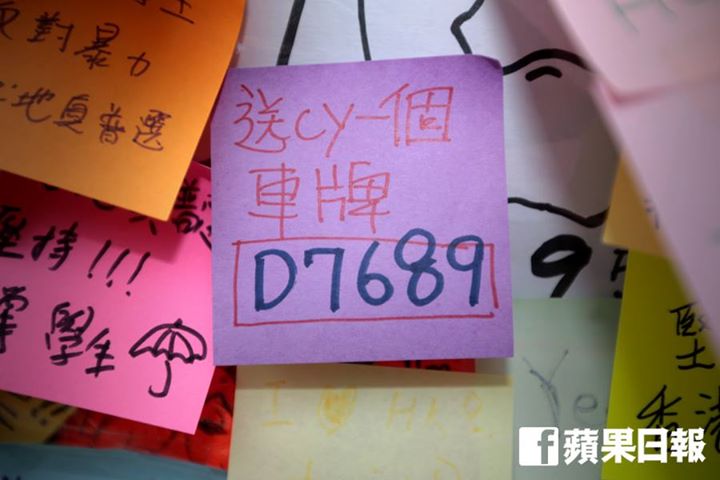
6. “Traveling around the garden”
Protesters use this phrase to describe Leung and the government’s words as misleading or an endless loop with no clear direction. The idiom, 遊花園, jau faa jyun, literally means “traveling around the garden,” passing the same waypoints along the way.
7. “Shameless”
The most common words chanted during the protests almost certainly has been the phrase 無恥, mou ci, “shameless.” Protesters shout this at everyone from police to anti-Occupy groups.